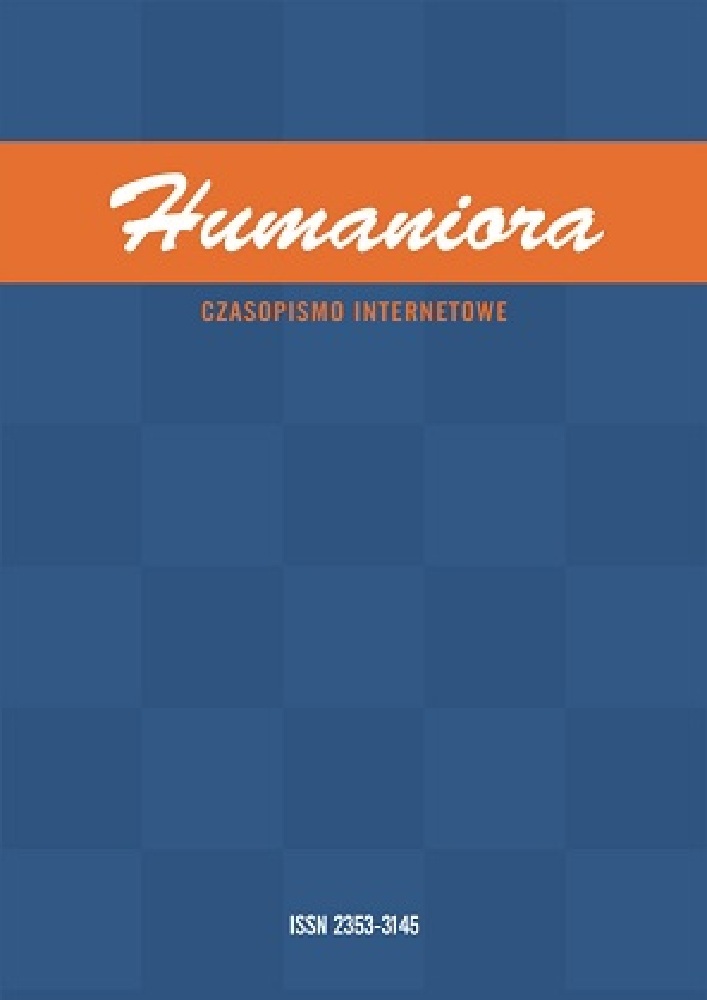Abstrakt
Attempts to explain the “phenomenon” of the stability and unity of nature were the subject of philosophical reflections and then of natural science research. The purpose of formulated concepts was to capture and describe the mechanisms of the perceived harmony of nature, for instance, in archaic myths personifying nature or in ancient Ionian philosophy. In modern times, these ideas were expressed in the form of a principle analogous to the contemporary “energy conservation law” and “the chain of being,” and finally they were covered in Linnaeus’s work under the common name “oeconomia naturae.” These ideas were reformulated by Darwin in his theory in which he concluded that this stability and harmony can be described using the term “economy of nature.” Such an approach to natural phenomena, allowing observation of new relationships between various elements of nature, made it possible to mathematize the sciences of animate nature. Changes in the perception of nature (philosophy of nature) had their consequences in the methodology of the natural sciences. Darwin’s theory reinterprets all earlier ideas, reducing their sense to the balance between costs and benefits, losses and profits. The contents of the article focus on discussing the concepts of Linnaeus and Darwin, treating previous ideas as introduction to the actual issues.
Bibliografia
Bowler P.L., Historia nauk o środowisku, tłum. J. Popiołek i W. Studencki, Wydawnictwa Uniwersytetu Warszawskiego 2007.
Chmielewski A., Piękno i obowiązek. Etyka ewolucyjna a estetyka Darwinowska, w: Lectiones & Acroases Philosophicae III (2010), Polskie Forum Filozoficzne.
Darwin Ch., O powstawaniu gatunków drogą doboru naturalnego czyli o utrzymywaniu się doskonalszych ras w walce o byt, tłum. Sz. Dickstein, J. Nusbaum, opracowanie przekładu J. Popiołek i M. Yamazaki, Wydawnictwa Uniwersytetu Warszawskiego 2013.
Descartes R., Zasady filozofii, tłum. I. Dąmbska, Antyk, Kęty 2001.
Elżanowski A., Prawdziwie darwinowska etyka, w: Lectiones & Acroases Philosophicae III (2010), Polskie Forum Filozoficzne.
Jonston J., O stałości natury, tłum. M. Stokowska, PWN, Warszawa 1960.
Leibniz G.W., Wyznanie wiary filozofa, tłum. różni, PWN, Warszawa 1969.
Linneusz K., Oeconomia Naturae, Upsala 1749.
Lovelock J., Gaja. Nowe spojrzenie na życie na Ziemi, tłum. M. Ryszkiewicz, Prószyński i S-ka, Warszawa 2003.
Łastowski K., Rozwój teorii ewolucji. Studium metodologiczne, Wydawnictwo Naukowe Uniwersytetu im. Adama Mickiewicza, Poznań 1987.
Mach E., Charakter ekonomiczny badań przyrodniczych, w: idem, Odczyty popularno-naukowe E. Macha, tłum. S. Kramsztyk, Wydawnictwo „Przeglądu Filozoficznego”, Łódź 1899.
Miłosz Cz., Poezje wybrane, Ossolineum, Wrocław 2013.
Pietrzak Z., O różnorodności zasad: filozoficznych, matematycznych i empirycznych, leżących u podstaw nowożytnego przyrodoznawstwa, „Ruch Filozoficzny” 2020, t. LXXVI, nr 3, DOI: https://doi.org/10.12775/RF.2020.039
Pietrzak Z., Znaczenie idei „niszczenia się świata” w kształtowaniu filozofii przyrody Jana Jonstona w dziele „O stałości natury”, „Ruch Filozoficzny” 2022, t. LXXVIII, nr 2. DOI: https://doi.org/10.12775/RF.2022.015
Prum R.O., Ewolucja piękna. Jak darwinowska teoria wyboru partnera kształtuje świat zwierząt i nas samych, tłum. K. Skonieczny, Copernicus Center Press, Kraków 2019.
Ray J., Willughby F., Ornithologiae libri tres, Londyn 1676.
Ward P., Hipoteza Medei, tłum. M. Betley, Prószyński i S-ka, Warszawa 2010.
Wróblewski A.K., Historia fizyki, Wydawnictwo Naukowe PWN, Warszawa 2009.
Licencja
Prawa autorskie (c) 2023 Zbigniew Pietrzak

Utwór dostępny jest na licencji Creative Commons Uznanie autorstwa – Bez utworów zależnych 4.0 Międzynarodowe.
Czasopismo oraz wszystkie zamieszczone w nim materiały są powszechnie dostępne i mogą być wykorzystywane do celów naukowych, edukacyjnych, poznawczych i niekomercyjnych bez konieczności uzyskiwania każdorazowej zgody autorów i redakcji. Nadesłanie artykułu do publikacji traktowane jest jako zgoda autora na udostępnienie swojej pracy i informacji w niej zawartych do powyżej wymienionych celów. W takich przypadkach należy jedynie wskazać źródło, z którego zaczerpnięte zostały informacje. Pobieranie opłat za dostęp do materiałów zawartych w czasopiśmie lub ograniczanie do niego dostępu jest zabronione.
Przesyłane do redakcji teksty muszą stanowić oryginalne prace, uprzednio nigdzie niepublikowane ani nie przedkładane innym redakcjom lub wydawcom. Autorzy nadsyłanych artykułów ponoszą odpowiedzialność za uzyskanie zezwoleń na publikowanie materiałów, do których prawa autorskie są w posiadaniu osób trzecich. Publikacja materiałów chronionych prawem autorskim jest możliwa pod warunkiem uprzedniego dostarczenia przez autora do redakcji pisemnej zgody właściciela praw autorskich.





